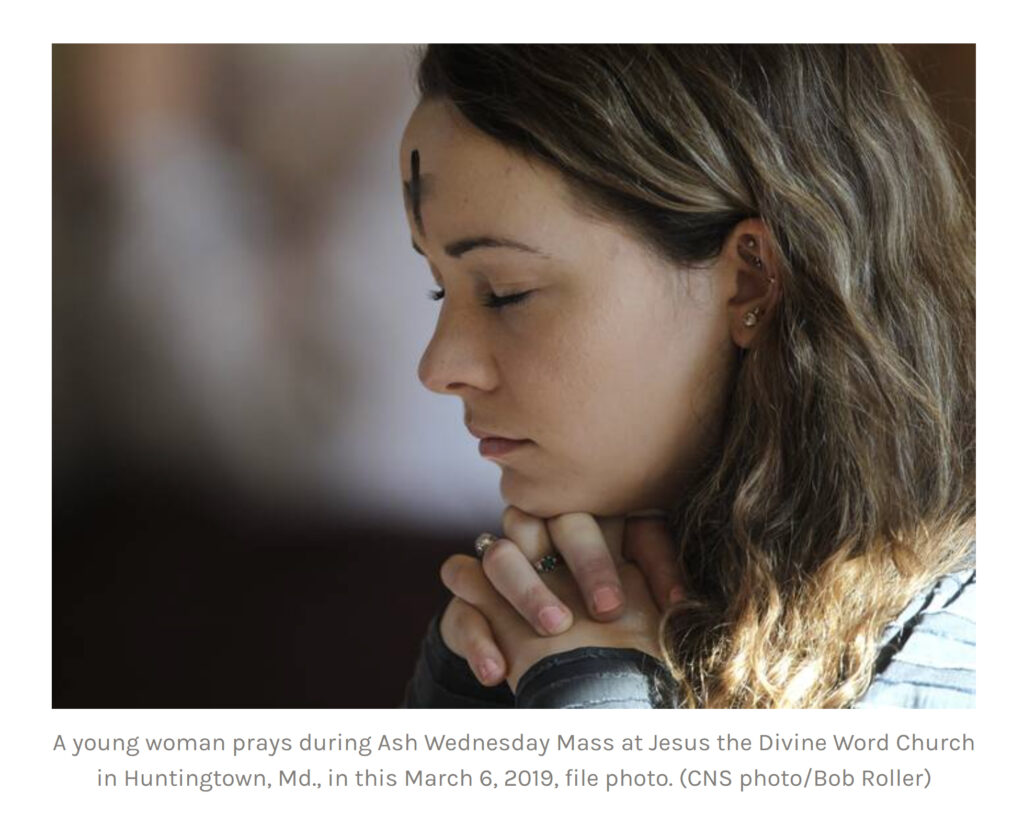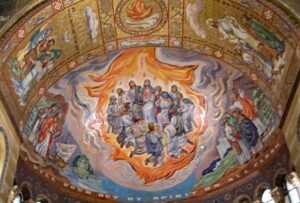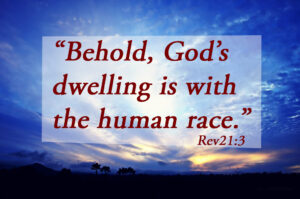
“The LORD God formed man out of the clay of the ground
and blew into his nostrils the breath of life,
and so man became a living being.
“. . . Out of the ground the LORD God made various trees grow
that were delightful to look at and good for food,
with the tree of life in the middle of the garden
and the tree of the knowledge of good and evil.
” . . . The woman saw that the tree was good for food,
pleasing to the eyes, and desirable for gaining wisdom.
So she took some of its fruit and ate it;
and she also gave some to her husband, who was with her,
and he ate it.
Then the eyes of both of them were opened,
and they realized that they were naked.” Genesis 2: 7-9; 3:6-7
What thoughts come to mind as we hear these somewhat fairytale stories in this First Sunday of Lent Reading? Do they sound relevant to the knowledge- and science-oriented adults of today, or to our school age children whose educational emphasis is on STEM (Science, Technoligy, Engineering and Mathematics), often, perhaps, to the detriment of areas of art, literature, language and philosophy? Why pay attention to these ancient stories? What can we “gain” from them?
Is it now and has it always been us, (like this story’s Adam and Eve) who, on our own, are doing the “choosing,” with little attentiveness to the source of our breathing? It is mostly us choosing what we like, what supports the way we are now thinking.
And so, once in a while the Church puts these mystical (meaning ‘truer than fact’) stories before us.
Discuss: As you think more deeply about these first stories of the Bible, why do you think they are here as the First Reading of Lent? What do they say, at a deeper level, about choice that we might want to consider as we enter the season of Lent? How much of our everyday choices are being made by us? How aware are children, adults, seniors of who or what is making one’s choices? Where are our choices leading us? How much attention do we give to whatever is directing our choices?
What is becoming of us and God’s (not “our”) world when we fail to take the plunge into the mysteries these stories ask us to consider? Agreed, they are not historical accounts of exactly what happened back then at the beginning of human life, Rather, they are treasured stories meant to convey profound insight about our nature as human persons, and about the origin of our abilities to think and act, and where our use of these abilities is taking us. How has humanity progressed from the beginning to now? How have I progressed from the beginning of my life until now? What are we making or undoing for ourselves and for those to come after us? This is still God’s world. We are still God’s creation.
Question: Rather than waiting until the future “day” when we will see God and Jesus, whom we promised in baptism to follow, let’s place ourselves beside them now and ask them how I am doing and if there are some other things on which we should be focusing.
Discuss: Is any one or any group of people doing this on a regular basis? Might it be beneficial for more “Christians” to do this? . . . for more of us and our family and friends to do this?
Recommendation: Listen to this Bishop Barron Presents video, Bishop Barron Presents – Jason Blakely – The Social Science Revolution, in which Bishop Barron and Dr. Jason Blakely, author and political science professor, discuss this topic found in Dr. Blakely’s new book, “We Built Reality: How Social Science Infiltrated Culture, Politics, and Power,”
Dr. Blakely relates what he thinks happens to us and our society when we ignore such stories. He says that we get trapped in a society and ways of thinking that depend solely on knowledge, science, economics and law, with little or no balancing insights from wisdom and wisdom traditions, from religions, especially Catholicism. After all, maybe God, whom we say IS LOVE, didn’t exactly “blow into our nostrils the breath of life” but we do see loving as one of our most treasured abilities. God is Love: Why do we say that? Maybe because of the value we place on our being able to love and be loved? Why do we seem drawn to treasure love so much? Was it “breathed” into us? . . . from whom? . . . from where? What’s the meaning of the Tree of the Knowledge of Good and Evil?
Dr. Blakely says, “We lose when we do not take time to consider the meaning of such stories. It is really an impoverishment. I think it has to do with the falling away from (not valuing) ‘wisdom’ which a lot of people are confused by. They know what they mean by ‘knowledge.’ Knowledge is scientific. We’re all after that, but wisdom, what’s that? No one has wisdom anymore. And stories are for children. So, we’ve kind of blocked ourselves off from certain profound sources of how to live and how to decipher, how to pursue goals and construct a society.”
A LENTEN CHALLENGE
Let’s put aside some time to read and ponder these Bible stories, asking ourselves some really deep but, in another sense, simple questions, like:
What awakens in me today as I ponder the meaning of these sacred words?
• “The LORD God formed man out of the clay of the ground and blew into his nostrils the breath of life, and so man became a living being.”
• “Out of the ground the LORD God made various trees grow that were delightful to look at and good for food, with the tree of life in the middle of the garden and the tree of the knowledge of good and evil.”
• “The woman saw that the tree was good for food, pleasing to the eyes, and desirable for gaining wisdom. So she took some of its fruit and ate it; and she also gave some to her husband, who was with her, and he ate it. Then the eyes of both of them were opened, and they realized that they were naked.”
Sister Loretta




